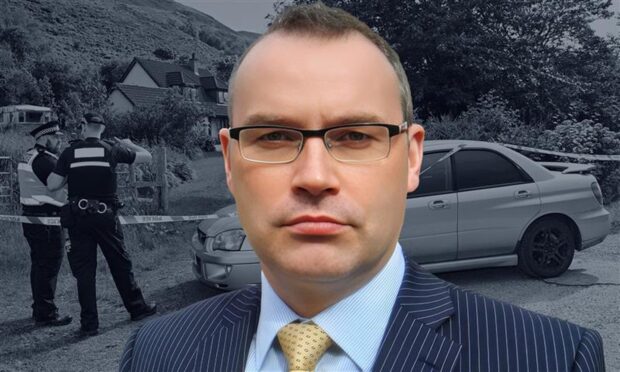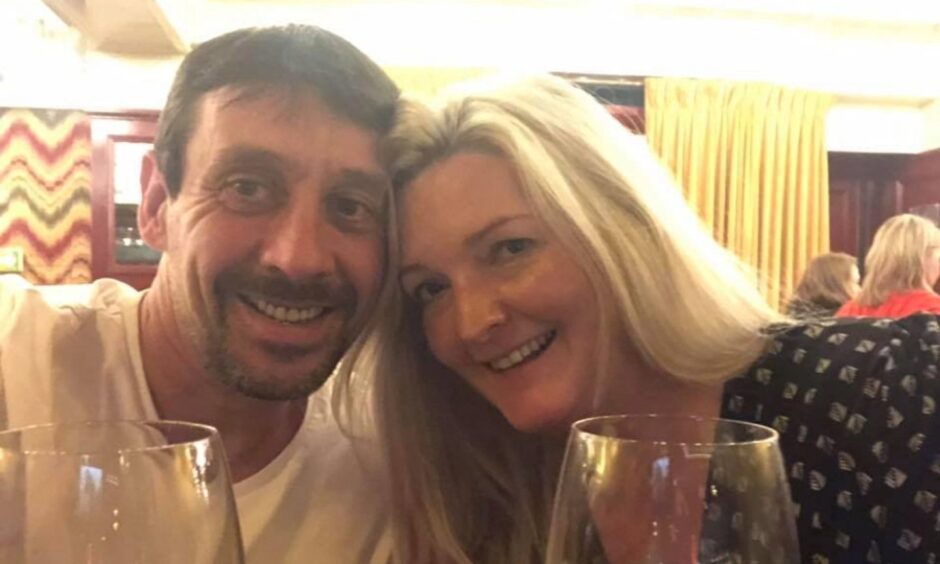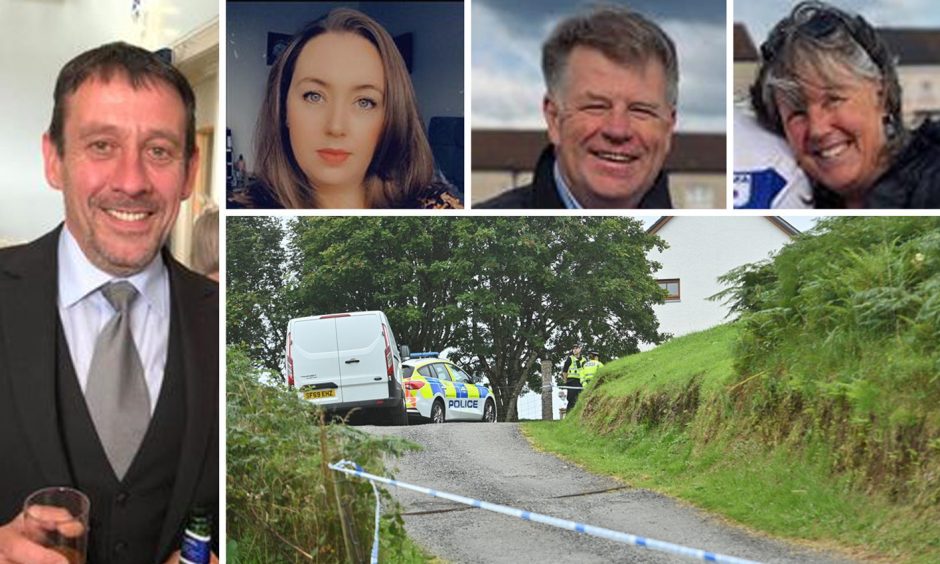The Skye killer Finlay MacDonald’s guns probably would have been seized BEFORE his spree if local police had been allowed to be more closely involved in firearms licensing decisions, a policing expert has claimed.
MacDonald, 41, was convicted at the High Court in Edinburgh after jurors found him guilty of murdering his 47-year-old brother-in-law John MacKinnon on August 10 2022.
He was also found guilty of the attempted murders of his wife Rowena, 34, and Dornie osteopath John MacKenzie and his wife Fay – both 65 – all on the same day.
However, as the killer begins his minimum 28-year prison sentence, questions have been raised about how and why MacDonald was granted and retained a licence despite his ongoing mental health struggles and propensity towards anger and violence.
Now, the Scottish Police Federation’s former General Secretary Calum Steele has criticised Police Scotland’s “centralised” gun licensing model, adding: “This should absolutely be the role for local officers and examples, such as Skye, show us why.”
Killer spent £3,618 on six shotguns and 1,000 cartridges of ammunition
MacDonald legally owned a total of six shotguns and more than 1,000 cartridges of ammunition.
The crofter and now-former member of his local clay pigeon shooting club made the purchases worth £3,618 over just a year.
Jurors were told the murder weapon, a Mossberg Pump Action .410 gauge shotgun, was bought just over eight weeks before his murderous rampage.
Mr Steele, a former Northern Constabulary officer, told The Press and Journal: “Those who will have been involved in the application process will be highly distressed by what happened.
“Almost certainly they would have questioned whether they could have or should have made different decisions.”
‘We had a concern about why on earth this guy had any guns’
A police insider at the time of the tragic events that rocked Skye and the nearby village of Dornie spoke of a “question mark” that hung over MacDonald.
“We had a concern about why on earth this guy had any guns,” the source told The P&J, adding: “People weren’t entirely happy about him having guns.
“It was not for a want of people flagging up the issues – it was just the fact that a lot of the decision-making had been centralised.
“I got the impression that, had it just been down to local cops, they’d just have said ‘no’.
“There were certainly question marks about licensing, but it was to do with resourcing, not individual officers that were doing it.”
During the days of Northern Constabulary, local officers took on gun licensing as part of their general workload.
The police insider, who has experience with firearms, said the model had changed over time.
“As a beat cop, you would go and visit farms and do the checks and speak to people. You’d pick up stuff left, right, and centre – throw away remarks, for example.
“You’d see things in houses, or pick up on hints of inappropriateness. But, now, specialist officers go out and do it.
‘Today’s system is a lot more paper-based’
“I’m not saying that the current firearms licensing officers don’t do all of that, but today’s system is a lot more paper-based and they don’t have the capacity to spend that individual time with people.”
Mr Steele said a large proportion of the administration “was taken away from the eyes and ears of the local police officers”.
He added: “If police officers had been embedded in the community in the way they used to be, it is more probable than not – and wouldn’t it be good not to have to wonder – that the police service and officers would have heard and been aware of the troubling behaviour that Mr MacDonald was beginning to display.
“As a consequence of that, they would almost certainly have intervened and taken his firearms off him – even if just on a temporary basis.”
The Police Investigations and Review Commissioner (PIRC) launched two separate probes, one into Police Scotland’s handling of MacDonald’s terrifying spree – particularly focusing on the events leading up the attack on the osteopath’s home – and another into the potential licensing issues.
PIRC completed both probes and submitted two reports to the Crown Office and Procurator Fiscal Service (COPFS) on July 11 and November 28 2023.
Speaking to this newspaper about the report into the police response, a senior Police Scotland source revealed: “There wasn’t an awful lot in it. There are always learnings but there were no big issues.”
COPFS investigations relating to the content of the PIRC reports remain ongoing.
‘The investigation is ongoing’
This newspaper can reveal that the outcomes of those investigations will be shared with the next of kin and those most directly affected by MacDonald’s shocking crimes.
A Crown official confirmed: “COPFS has received reports from PIRC.”
The spokesman added: “The investigation is ongoing and the family of John MacKinnon and those affected will continue to be kept updated in relation to any significant developments.”
Police Scotland said it had “fully supported all investigations” but was “inappropriate to comment further” on the circumstances probed by the Crown-directed PIRC investigation.
Read more:
‘Doting’ Skye dad unmasked as ‘menacing’ anti-authority conspiracy theorist who always played the victim
For all the latest court cases in Inverness as well as crime and breaking incidents, join our Facebook group.



